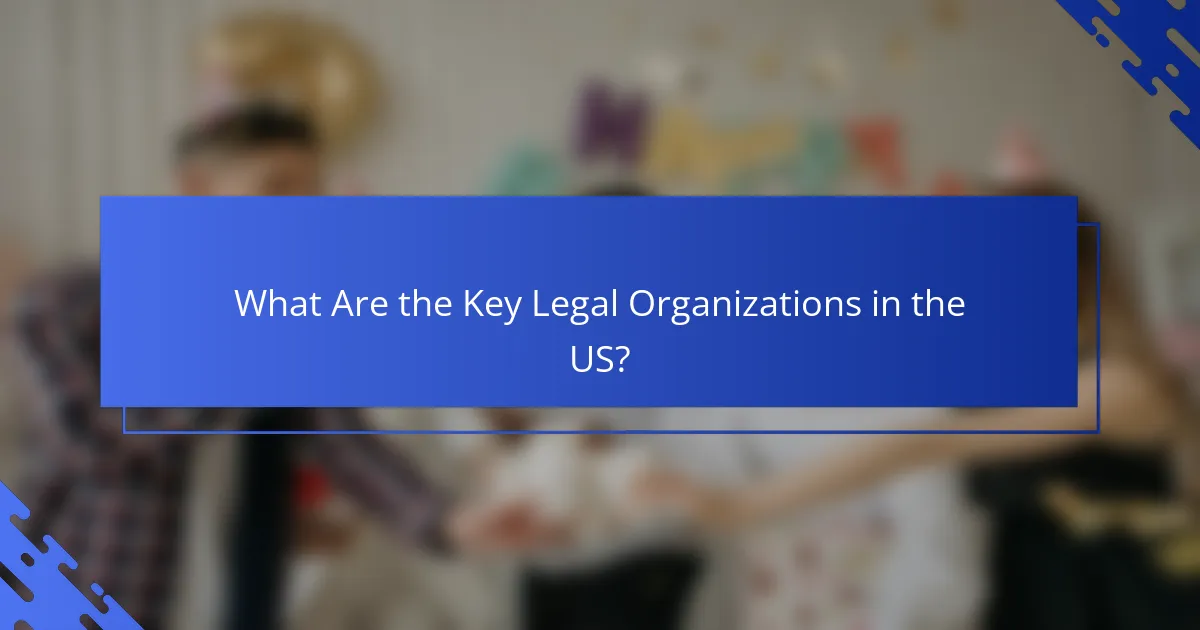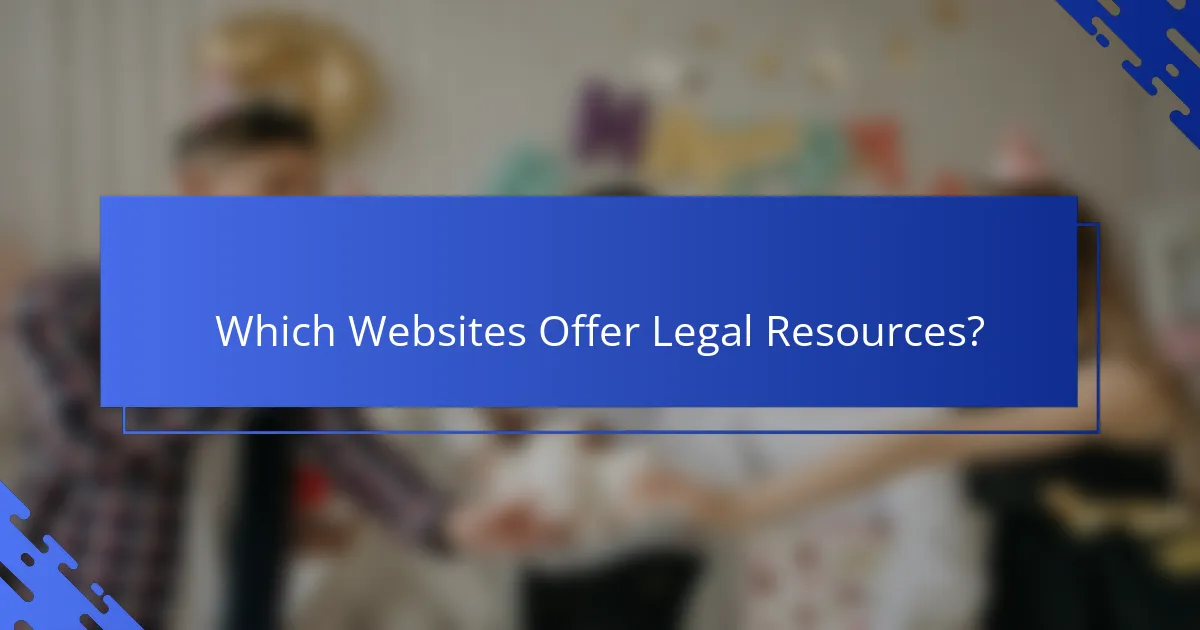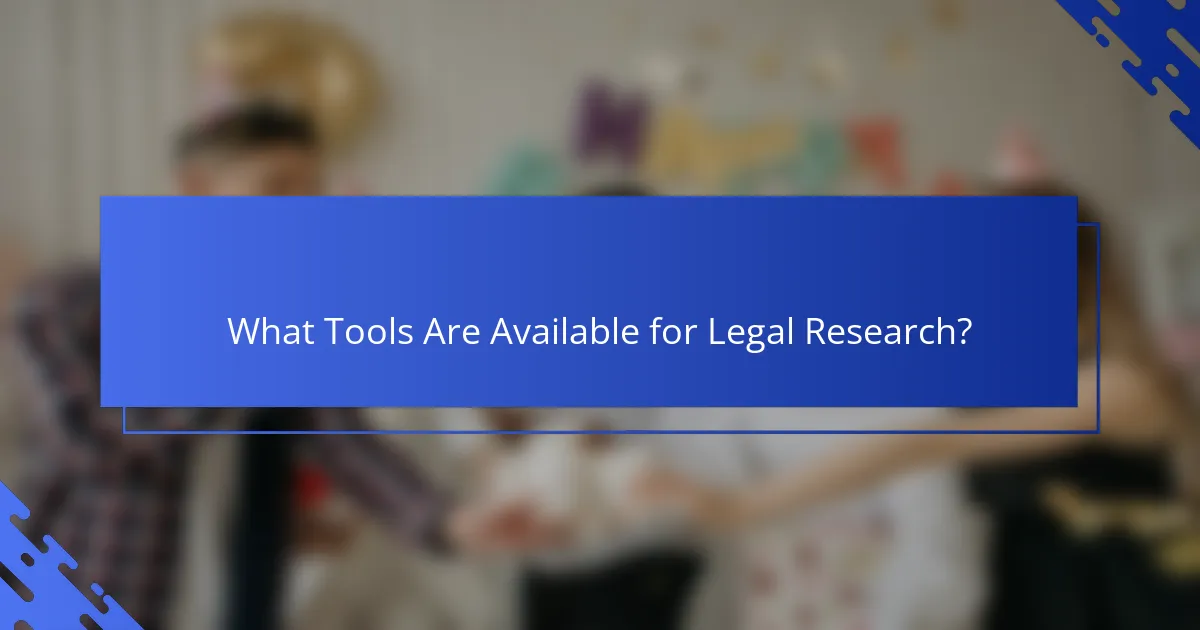Legal resources are vital for both professionals and the public, offering support, advocacy, and essential information across various aspects of law. Key organizations and websites provide access to legal aid, civil rights information, and tools to navigate legal issues. Additionally, legal research tools enable thorough exploration of case law, statutes, and regulations, ensuring informed decision-making in legal matters.

What Are the Key Legal Organizations in the US?
The key legal organizations in the US provide essential resources, support, and advocacy for both legal professionals and the public. These organizations focus on various aspects of law, including legal aid, civil rights, and professional standards.
American Bar Association
The American Bar Association (ABA) is a national organization that represents legal professionals across the United States. It sets ethical standards, provides continuing education, and advocates for the rule of law.
Membership offers access to a wealth of resources, including legal research tools, networking opportunities, and practice management guidance. The ABA also publishes various journals and reports that keep members informed about legal developments.
National Legal Aid & Defender Association
The National Legal Aid & Defender Association (NLADA) focuses on ensuring access to justice for low-income individuals. It supports legal aid programs and public defenders through training, resources, and advocacy.
NLADA emphasizes the importance of quality legal representation and works to improve funding and policies that affect legal aid services. They also provide a platform for sharing best practices among legal service providers.
Legal Services Corporation
The Legal Services Corporation (LSC) is a federally funded organization that provides financial support to legal aid programs across the country. It aims to ensure that low-income individuals have access to essential legal assistance.
LSC grants are awarded to nonprofit organizations that offer free legal services in civil matters. Applicants must meet income eligibility requirements, which typically align with federal poverty guidelines.
State Bar Associations
State Bar Associations regulate the practice of law within their respective states. They oversee attorney licensing, discipline, and continuing education requirements.
Each state bar provides resources for both attorneys and the public, including legal referral services, ethics opinions, and educational programs. Membership can enhance an attorney’s credibility and provide networking opportunities within the legal community.
American Civil Liberties Union
The American Civil Liberties Union (ACLU) is dedicated to defending individual rights and liberties guaranteed by the Constitution. It engages in litigation, advocacy, and public education on a wide range of civil rights issues.
Through its national and state affiliates, the ACLU tackles issues such as free speech, privacy rights, and discrimination. Individuals can support the ACLU by becoming members or donating to their initiatives aimed at protecting civil liberties for all.

Which Websites Offer Legal Resources?
Several websites provide valuable legal resources, including information on various legal topics, forms, and tools for both individuals and businesses. These platforms can help users navigate legal issues, find attorneys, and access important documents.
FindLaw
FindLaw is a comprehensive legal resource that offers a wide range of information on legal topics, including case law, statutes, and legal news. Users can access articles, guides, and a directory of lawyers to help them understand their legal rights and options.
The site also features a legal dictionary and a section dedicated to legal forms, making it easier for individuals to find the documents they need for various legal situations. FindLaw is particularly useful for those seeking information on specific legal issues or looking to connect with legal professionals.
Justia
Justia provides free access to a wealth of legal information, including case law, statutes, regulations, and legal articles. The platform is designed to help users research legal topics and stay informed about recent developments in the law.
In addition to its extensive legal database, Justia offers a lawyer directory and resources for finding legal help. It is a valuable tool for both legal professionals and individuals seeking to understand their legal rights and responsibilities.
LegalZoom
LegalZoom is an online legal service that helps individuals and businesses with various legal needs, such as forming a business, creating wills, and filing trademarks. The platform simplifies the legal process by providing easy-to-use templates and guidance for completing legal documents.
While LegalZoom offers affordable services, users should be aware that it does not provide direct legal advice. It is best suited for straightforward legal tasks where users feel comfortable handling the process with minimal assistance.
Nolo
Nolo is a well-known resource for legal information, offering a variety of books, articles, and online tools aimed at helping individuals understand their legal rights. The site covers a broad range of topics, including family law, business law, and consumer rights.
Nolo also provides access to legal forms and software, making it easier for users to create necessary documents. It is particularly beneficial for those who prefer a self-help approach to legal matters and want to educate themselves on relevant laws and procedures.

What Tools Are Available for Legal Research?
Legal research tools provide access to a wealth of legal information, including case law, statutes, regulations, and secondary sources. These tools are essential for legal professionals to conduct thorough research efficiently and effectively.
Westlaw
Westlaw is a comprehensive legal research platform widely used by attorneys and legal scholars. It offers access to a vast database of legal resources, including case law, statutes, legal briefs, and secondary materials. Users can leverage advanced search features and filters to locate relevant information quickly.
Consider Westlaw’s KeyCite feature, which helps track the citation history of cases and statutes, ensuring that the information is current and reliable. Subscription costs can vary, often ranging from several hundred to several thousand dollars annually, depending on the level of access and features required.
LexisNexis
LexisNexis is another leading legal research tool that provides extensive legal information and analytics. It offers a user-friendly interface and powerful search capabilities, allowing users to find cases, statutes, and legal news efficiently. LexisNexis also includes tools for legal analytics, which can help predict case outcomes based on historical data.
When using LexisNexis, take advantage of its citation analysis tools to verify the status of cases and statutes. Subscription fees can be significant, typically ranging from a few hundred to several thousand dollars per year, depending on the services selected.
Fastcase
Fastcase is an increasingly popular legal research tool known for its affordability and user-friendly design. It provides access to a wide range of legal materials, including case law and statutes, and is particularly appealing to solo practitioners and small firms due to its lower cost structure.
Fastcase offers unique features like visual case law maps and citation analysis tools, which can enhance the research process. Subscription plans are generally more budget-friendly, often starting at a few hundred dollars per year, making it a practical option for those seeking cost-effective legal research solutions.

How to Choose the Right Legal Resource?
Choosing the right legal resource involves assessing credibility, user-friendliness, and costs. These factors help ensure you select a resource that meets your specific legal needs effectively.
Assessing Credibility
To assess the credibility of a legal resource, check the qualifications of the authors and the reputation of the organization behind it. Look for resources created by licensed attorneys or established legal institutions, as these are more likely to provide accurate and reliable information.
Additionally, consider user reviews and ratings. Resources with positive feedback from users can indicate trustworthiness. Be wary of sites that lack transparency about their authorship or sources.
Evaluating User-Friendliness
User-friendliness is crucial for effective navigation and comprehension. A good legal resource should have a clear layout, intuitive navigation, and easily accessible information. Look for features like search functionality and organized categories to help you find what you need quickly.
Consider the format of the content as well. Resources that use plain language, visuals, or interactive tools can enhance understanding, especially for complex legal topics. Test a few resources to see which ones you find easiest to use.
Comparing Costs
When comparing costs, determine whether the legal resource is free, subscription-based, or pay-per-use. Free resources can be valuable, but they may lack comprehensive information or support. Subscription services often provide more in-depth content and tools but can range from low monthly fees to higher annual costs.
Evaluate the value you receive for the price. Some paid resources offer trial periods, allowing you to assess their usefulness before committing. Always consider your budget and the specific legal services you require when making a decision.

What Are the Benefits of Using Legal Resources?
Using legal resources provides individuals and businesses with essential information, guidance, and tools to navigate legal matters effectively. These resources can enhance understanding, reduce costs, and empower non-lawyers to make informed decisions.
Access to Information
Legal resources offer a wealth of information on various topics, including laws, regulations, and procedures. Websites, databases, and legal organizations provide access to case law, statutes, and legal articles, making it easier for users to find relevant information.
For example, platforms like LexisNexis and Westlaw allow users to search for legal precedents and statutes, which can be invaluable for understanding specific legal situations. Many resources are available for free or at a low cost, increasing accessibility for everyone.
Cost-Effective Solutions
Utilizing legal resources can significantly reduce legal expenses. Many online tools and templates are available that allow individuals to draft documents, such as wills or contracts, without hiring a lawyer. This can save hundreds to thousands of dollars, depending on the complexity of the legal issue.
Additionally, some organizations offer legal assistance at reduced rates or on a sliding scale based on income, making legal help more affordable. Exploring these options can lead to substantial savings while still obtaining necessary legal support.
Guidance for Non-Lawyers
Legal resources are designed to assist non-lawyers in understanding their rights and obligations. Many websites provide step-by-step guides, FAQs, and articles that break down complex legal concepts into simpler terms.
For instance, the American Bar Association offers resources that explain legal processes and rights in plain language, helping individuals navigate issues like family law or tenant rights. This guidance can empower users to take appropriate actions without feeling overwhelmed by legal jargon.
